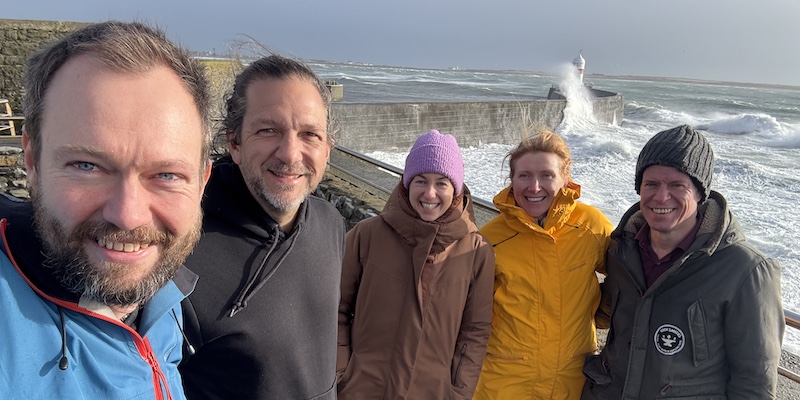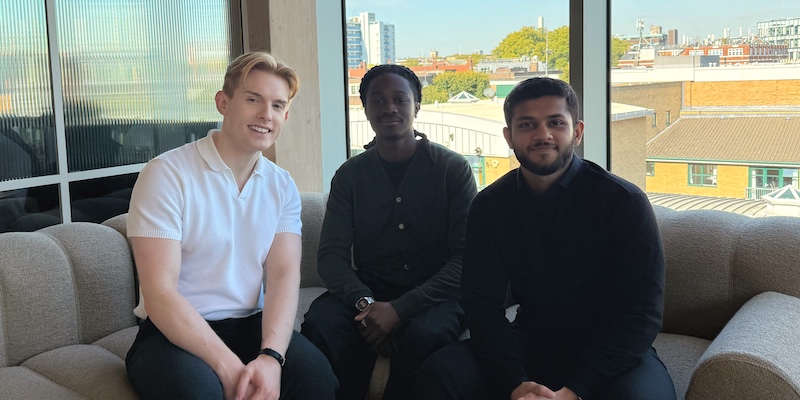.png)
Insights on founder diversity
Last year, we became signatories to the Investing in Women Code - an initiative to improve access to resources and investment for female entrepreneurs. Last month, they launched their second annual progress report, for which we proudly contributed our diversity data.
There are now 160 firms, including BGV, that joined the initiative, committing to providing greater transparency on funding allocations to women-led businesses. Often BGV is held up as a gold standard for investing in diversity. In 2020, we believe we were the first European VC to be radically transparent on our portfolio diversity and inclusion, and we’ve also been ranked second globally for these efforts two years running. While we continue to push forward on our own practices, we also see the importance of contributing to industry-wide initiatives.
Unfortunately the startup investment industry is still rife with inequalities, so investing in diverse founders requires work at every stage of the funding process. We have a whole strategy dedicated to opening up access to capital for founders from all walks of life. Below we share insights on how we’re doing on that front. But first, we wanted to share some highlights from the latest Investing in Women Code report, to get a better picture of the industry at large.
Results from the Investing in Women Code Annual Report 2022
Data collected from all signatories covers a range of financing options - from loans and debt finance to equity investment from angel groups, and venture and growth capital firms. For all types of finances, all-female teams made up a significantly lower proportion of applications. However, some marginal shifts in improving access to capital are worth pointing out:
- VC funding for female-founder teams increased slightly. Data from venture and growth capital firms suggests that the proportion of deals done with all-female founder teams was 9%, up from 6% in 2020 and compared to a benchmark of 7% for the whole market.
- Progression from pitch to Investment Committee (IC) for female-founded teams lags behind. 78% of code signatories make early-stage VC investments and the data suggests that mixed-gender and all-male teams in the sample show similar progression rates from pitch deck to receiving funding, while all-female teams fall behind.
- All-female teams request amounts of funding increasingly on par with male-only teams. The amount of funding requested by all-female teams significantly increased compared to 2020, where requests were less than 50% of that by male-only teams.
Unfortunately, this industry continues to thrive on referrals and ‘warm introductions’, which are more likely to pass the initial screening. Such approaches significantly impact success rates at each stage for founder teams of all gender compositions. And yet, all-female teams are most likely to make contact through warm approaches, yet receive the least benefit.
"If progression rates between pitch deck and IC were equal across genders, there would have been 186 more all-female teams at IC stage."
Taking a look at BGV’s data
At BGV, we operate on a “no warm intro needed” basis. Our application process is the same for everyone seeking funding from BGV. Regardless of whether someone was recommended to apply to BGV, saw a tweet about funding opportunities, or searched for us on the web, everyone is required to submit the same application form for funding. This helps to have a levelling effect, where teams are assessed on the merit of their application, not who they are or how they know us.
- Two thirds of applicants are based in the UK. 66.8% of applicants are based in the UK, of which 22.2% of applicants are located outside London.
- The tech fidelity of products and services is increasing. 34.6% of companies had a prototype and 35.9% had a working product in the market (ranging from limited to public access).
- Nearly half of applicants did not receive any prior funding. 48.3% had no previous funding, with 28.6% bootstrapping their business and 22.1% having raised funding.
We take a permission-based approach for collecting data on the diversity of applicants to remove any unconscious bias at the application stage and safeguard applicants' data. That means we explicitly ask founders if they are happy to fill out a separate Diversity & Inclusion questionnaire, which we send upon submission of an application.
For two cohorts in 2021, 47% of all founders who applied to BGV filled out our form. We hope to receive a much higher response rate in the future. But insights from this data already help us streamline our activities to encourage founders from all walks of life to apply for funding.
Data on the diversity of founders applying to our programme
- Most founders are aged 25-35 (46%); overall founders are aged between 18 and 74.
- 31% of founders identify as women, 65.8% as men and 1.4% as non-binary.
- 42.9% of founders identify as White, closely followed by founders identifying as Asian or Asian British (25.1%) and Black, African, Caribbean or Black British (17.8%).
- 11.7% of founders identify as belonging to the LGBTQ+ community.
- 11.1% of founders live with a physical or mental health condition or illness, with 15% of those indicating that it reduces their ability to carry out day-to-day activities.
- 89.2% of founders hold a university degree, with 20% of those being the first ones in their families to go to university.
- 16.9% indicated that they live on a low income (30% or more below local median income).
- 20.7% of founders have caring responsibilities for children or family relatives.
- 49.1% of founders are first time founders.
Our initial takeaways from this data are that overall we’re providing increased access to capital to founders with different socio-economic backgrounds, but we can do much better. For example, nearly 90% of applicants are university graduates. So how can we provide better access to capital to folk who weren’t afforded the opportunity of a university education or chose not to pursue a degree? Another important question we’re asking ourselves with our community and network efforts is how to make our content and events more accessible and inclusive?
We’ve started working on finding the answers to some of those questions. For example, one critical aspect of our strategy is to work with networks and communities who support underrepresented founders. In the past year we ran pre-investment readiness workshops with organisations such as The Entrepreneurial Refugee Network (TERN) to help first-time founders get a clearer idea on fundraising from VCs. We also worked with NorthInvest to help more founders in the north get pitch-ready and learn more about tech for good investing. Similarly, we’ve started running a monthly series of Investor ‘Ask Me Anything’ events (AMAs) with notable investors in the ecosystem to enable better access to funding without the need for warm intros.
We’re always keen to work with more organisations who deeply care about levelling the playing field for founders from all walks of life, so if that’s you, please get in touch.
If you’re interested in taking a look at our portfolio founder diversity data, then check out our latest Impact & Learning Report.





